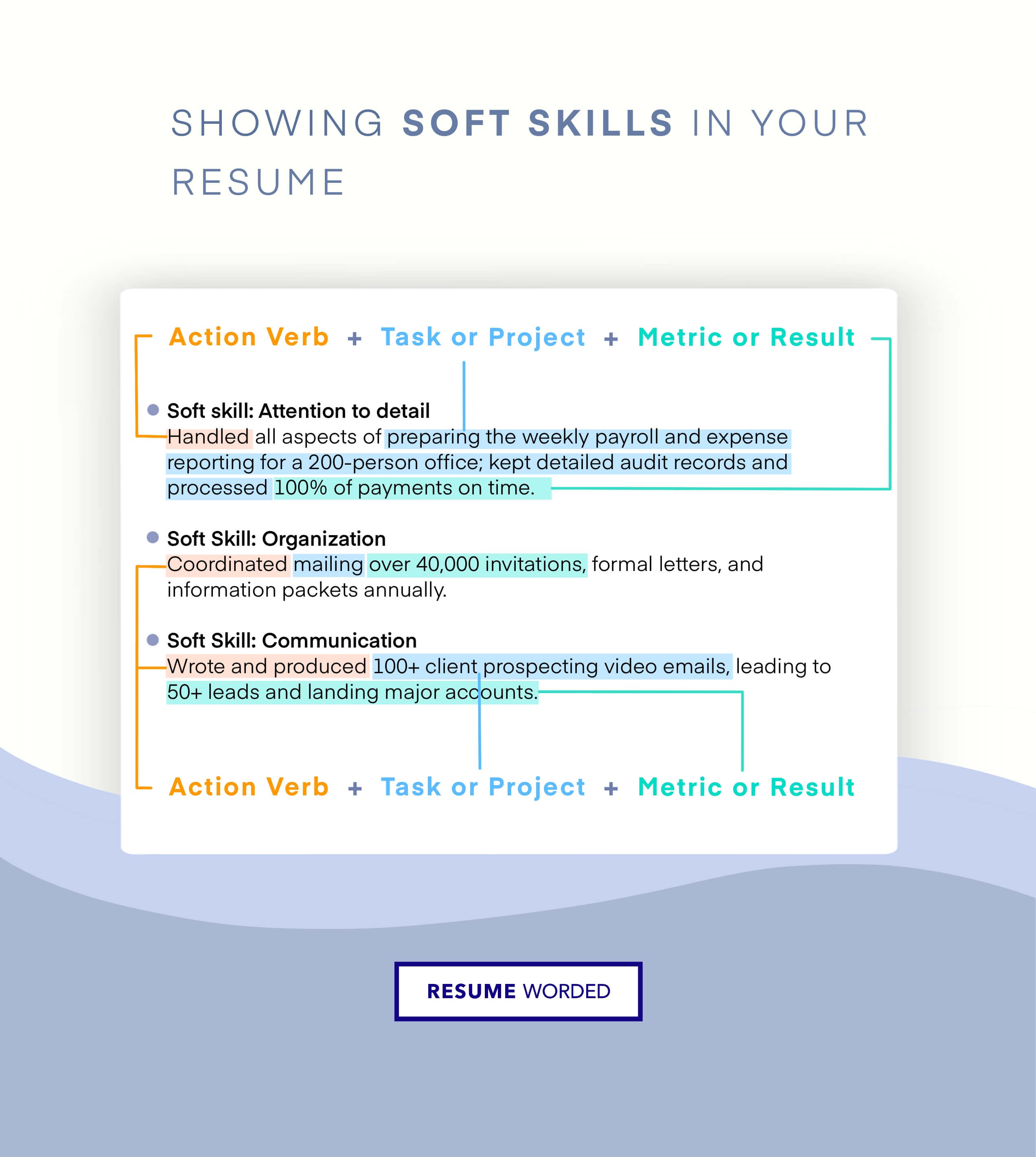Friendliness goes a long way in a lot of jobs, from hiring managers opting for someone who seems easy to work with to promoting the team member who nobody has a bad word to say about. But how do you get your foot in the door in the first place? Is there a good way of saying that you’re friendly on your resume?
There is — but it isn’t quite as straightforward as writing “I’m a friendly person who gets along well with everyone.” (In fact, if you have written something like that anywhere on your resume or cover letter, please delete it.) Keep reading as we walk you through what to do instead.
How to say you’re friendly on a resume: A step by step guide
- Start by breaking down what you actually mean when you say you’re friendly. Do you build relationships easily? Are you a great communicator? Do you always look on the bright side of a bad situation?
- Take a look at the job description. What qualities does it describe in an ideal candidate? Try to use this as a guide.
- Once you have a short list of specific qualities, try to come up with an example for each of them. Ideally, this will be from a time when you demonstrated that quality at work, but examples from volunteering, school, or extracurricular projects and activities can also be used in a pinch.
- Now it’s time to transform your examples into bullet points! Start with an action verb that describes what you actually did, e.g. Communicated, Assisted, Mediated.
- After the action verb, specify the task or project you worked on and what the results were. Even better if you can quantify those results — hiring managers love numbers, even if they’re only a best guess.
You should be left with a handful of bullet points that show how friendly you are. Now, where do you put them?
Where to put friendliness and other soft skills
The answer is: You should put friendliness — and any other soft skill you want to highlight — in the Work Experience section of your resume. While it may seem like a skill (and it is!), being friendly doesn’t belong in your Skills section, which is for hard skills only.
Here’s an example of what being friendly should look like on your resume:

Notice that the word “friendly” doesn’t appear once? That’s because, when it comes to soft skills, you need to show, not tell.
A good way to check if your resume accomplishments effectively highlight soft skills like friendliness is to upload it to the tool below. It will let you know if you have demonstrated friendliness and other soft skills without explicitly listing them in your resume.
Interpersonal skills for your resume
What exactly are recruiters looking for when they say they want someone who’s “friendly?” Try highlighting interpersonal skills like:
- Communication
- Teamwork
- Emotional intelligence
- Positive attitude
- Empathy
- Patience
- Discretion
- Inclusiveness
- Cultural sensitivity and respect
- Relationship building
- Conflict resolution
- Ability to stay calm under pressure
- Willingness to assist with tasks outside your specific area of responsibility
Resume synonyms for being friendly
How do you say that you’re friendly without just coming out and saying it? Try using resume-appropriate synonyms like:
- Built relationships
- Communicated
- Assisted
- Mediated
- Trained
- Moderated
- Facilitated
- Resolved
- Guided
- Persuaded
- Advised
- Interpreted
- Liaised
- Recruited
- Reconciled
Avoid obvious synonyms for being friendly, like “I’m a people person” or “I work well as part of a team.” These are meaningless buzzwords that hiring managers will largely ignore. Instead, you need concrete examples that show your friendliness in action.
Resume bullet point examples
Looking for specific examples of how to say you’re friendly on a resume? Try some of these:
Provided sound guidance, mentorship, and career training to 30 administrative (non-technical) personnel.
Being friendly and approachable is a key quality when you’re in a role that involves training others. Try to be as specific as possible about how many people you trained and in what areas.
Worked with 30+ clients to guide them through the event details and served as the personal coordinator through the entire planning process and event.
Client-facing roles often require you to be friendly — even when you’re not feeling it. A strong track record of client satisfaction can go a long way toward proving that you have what it takes to be “on” when you’re needed.
Strengthened 12 vendor relationships, increased consumer engagement by 20%, and improved the sales team's performance.
Friendliness is most valuable to employers when it’s a means to an end. If your friendliness helped you land clients or increase sales, make sure you focus on the business impact.










